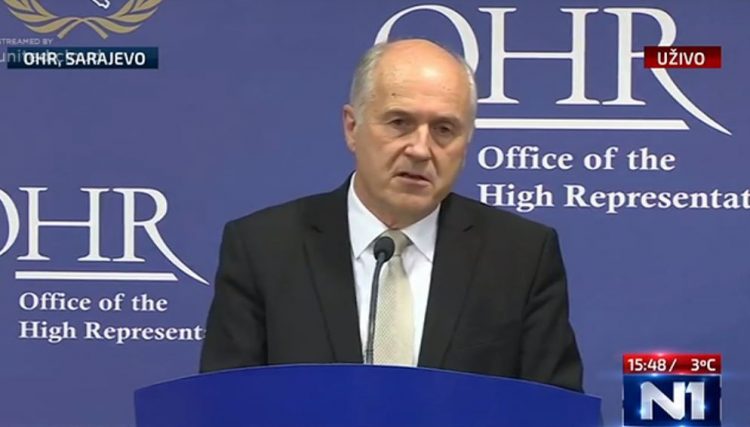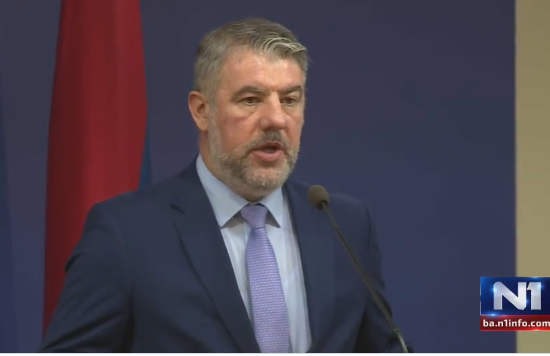
Bosnia and Herzegovina’s High Representative Valentin Inzko categorically denies allegations of violations of the Constitution, disrespect of the decisions of the Court or acting against Bosnian Croats, as was stated in Sunday statement by the Croat People’s Assembly (HNS).
The General Council of the Croat People's Assembly (HNS), a political organisation of Croat political parties in Bosnia, issued a statement saying that High Representative Valentin Inzko was advocating violations of the country’s Constitution and that he was disrespecting decisions of the Constitutional Court.
The Office of the High Representative (OHR), in charge of overseeing the civilian implementation of the Dayton Peace Agreement which ended the war in Bosnia (1992-1995), told the Vijesti.ba that Inzko submitted his opinion on Deputy Chairman of the Bosnia’s House of Representatives appeal to the Constitutional Court as amicus curiae.
“At the request of the Constitutional Court of Bosnia and Herzegovina, the High Representative submitted his opinion as an amicus curiae in the case of Borjana Kristo. In his opinion, the High Representative had clearly stated the reasons based on the Washington Agreement, due to which the High Representative included the disputed provisions in the Constitution of the Federation of Bosnia and Herzegovina entity in his 2002 decision,” the OHR told Vijesti.ba.
“The High Representative categorically denies all claims of violations of the Constitution of Bosnia and Herzegovina, disrespect of the Court’s decisions or acting against the Croat people, as stated in the HNS statement,” OHR said.
In January 2018, Borjana Kristo appealed to the Constitutional Court saying that some provisions of the Constitution of the Federation of Bosnia and Herzegovina entity should be declared unconstitutional because they do not provide for equal representation of all constituent peoples in Bosnia and Herzegovina. Following her appeal, the Court asked the High Representative for his opinion as amicus curiae, to which he said the disputed sections should not be declared unconstitutional.





